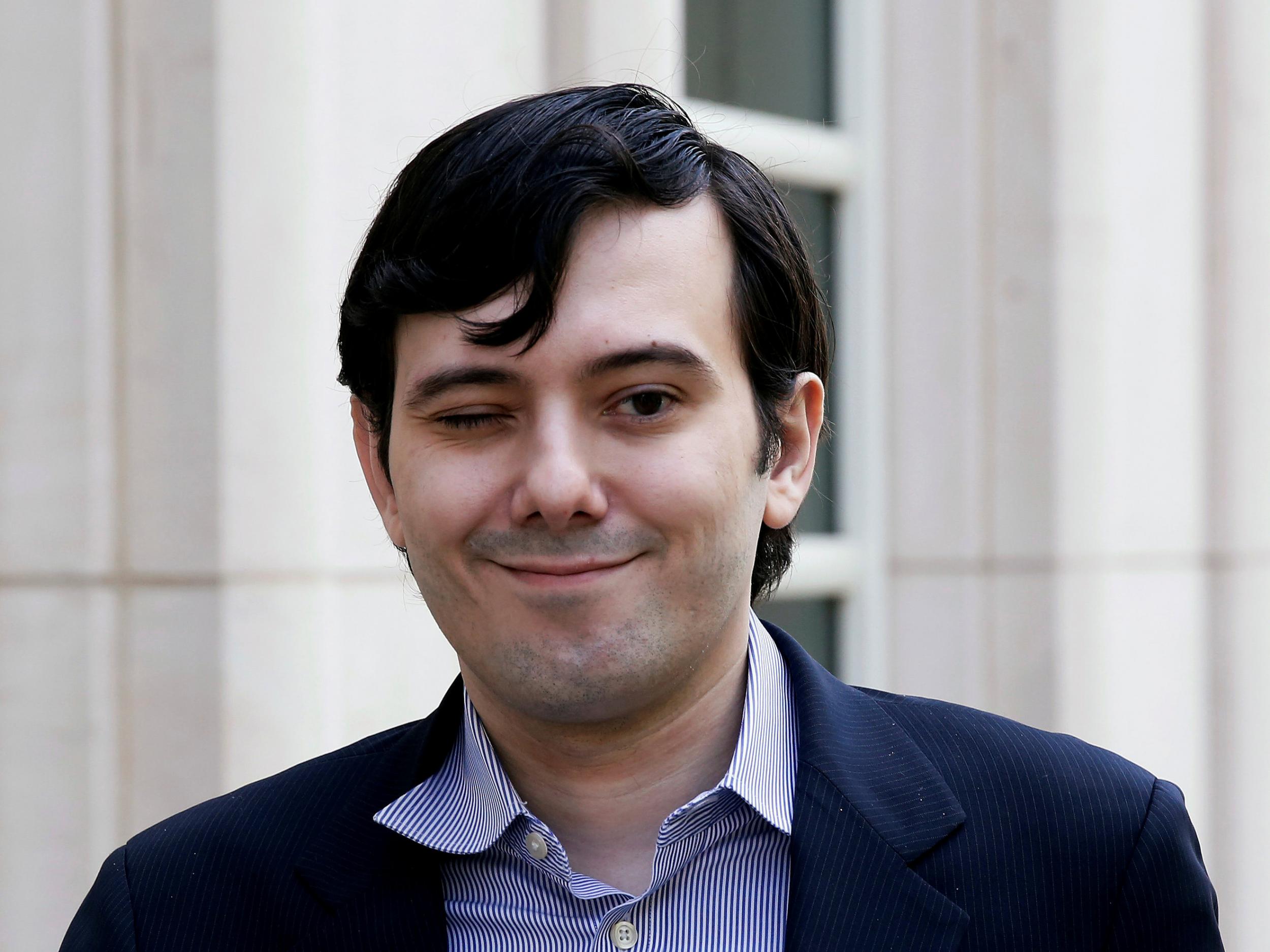Martin Shkreli: Pharmaceutical entrepreneur facing trial over Ponzi-like scheme to defraud investors
'Pharma bro' notorious for raising cost of life-saving medication pleads not guilty to charge he siphoned money from biopharmaceutical company Retrophin

Your support helps us to tell the story
From reproductive rights to climate change to Big Tech, The Independent is on the ground when the story is developing. Whether it's investigating the financials of Elon Musk's pro-Trump PAC or producing our latest documentary, 'The A Word', which shines a light on the American women fighting for reproductive rights, we know how important it is to parse out the facts from the messaging.
At such a critical moment in US history, we need reporters on the ground. Your donation allows us to keep sending journalists to speak to both sides of the story.
The Independent is trusted by Americans across the entire political spectrum. And unlike many other quality news outlets, we choose not to lock Americans out of our reporting and analysis with paywalls. We believe quality journalism should be available to everyone, paid for by those who can afford it.
Your support makes all the difference.Martin Shkreli, the pharmaceutical entrepreneur vilified as the “pharma bro” for raising the price of a life-saving drug by 5,000 percent, will go on trial on Monday for what US prosecutors called a Ponzi-like scheme at his former hedge fund and a drug company he once ran.
Prosecutors have accused Shkreli of lying to investors in the hedge fund and siphoning millions of dollars in assets from biopharmaceutical company Retrophin Inc to repay them. He has pleaded not guilty.
The trial, which will be heard by US District Judge Kiyo Matsumoto in Brooklyn, is expected to last four to six weeks.
Shkreli, a boyish-looking 34, outraged patients and US lawmakers by raising the price of anti-parisitic drug Daraprim to $750 a pill, from $13.50, in 2015, when he was chief executive of Turing Pharmaceuticals.
The charges that led to his arrest in December 2015 are not related to Turing but focus on Shkreli's management at Retrophin and the hedge fund MSMB Capital Management between 2009 and 2012.
Prosecutors said Shkreli lied about MSMB's finances to lure investors and concealed devastating trading losses from them. They said he paid the investors back with money stolen from Retrophin, which he founded in 2011.
The criminal case has drawn attention in part because of Shkreli's refusal to lay low. He has continued to court the public eye, especially through social media, sometimes complicating his defence.
At a hearing last Monday, prosecutors refused to agree to Shkreli's request to reduce his bail by $3 million, which he said he needs to pay taxes and legal bills, pointing to his own public boasts about his wealth.
Since his arrest, Shkreli has flaunted purchases including a World War II-era Enigma code breaking machine, a Picasso painting and unreleased albums by Wu-Tang Clan and Lil Wayne.
In April, he offered $40,000 to a Princeton University student who solved a mathematical proof. In May, he pledged on Facebook to pay $100,000 for tips leading to the arrest of the person who killed former Democratic National Committee employee Seth Rich.
Shkreli was banned from Twitter in January for harassing a female journalist who wrote an op-ed piece for Teen Vogue criticising President Donald Trump, whom Shkreli has supported.
Shkreli's attention-seeking has at times exasperated his lawyer, Benjamin Brafman, who urged Matsumoto last week not to give much weight to his client's “preposterous statements.”
Reuters
Join our commenting forum
Join thought-provoking conversations, follow other Independent readers and see their replies
Comments